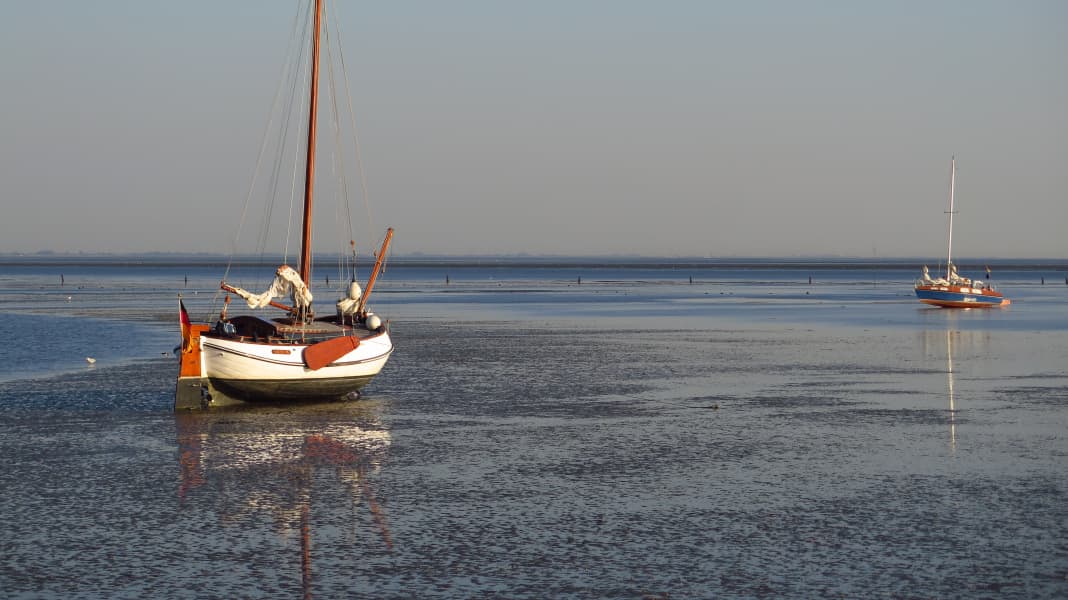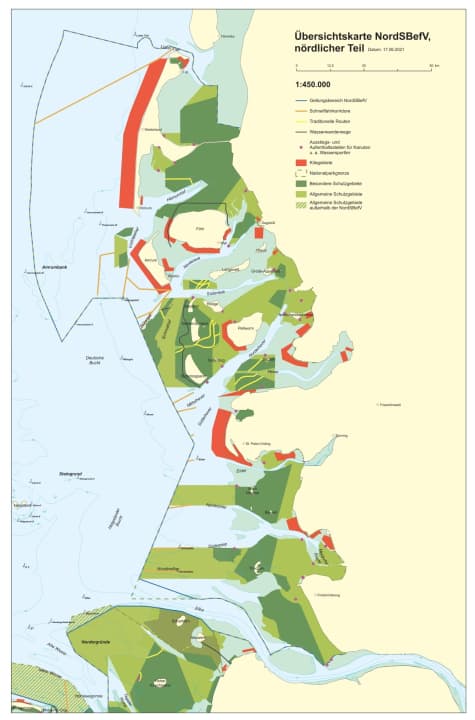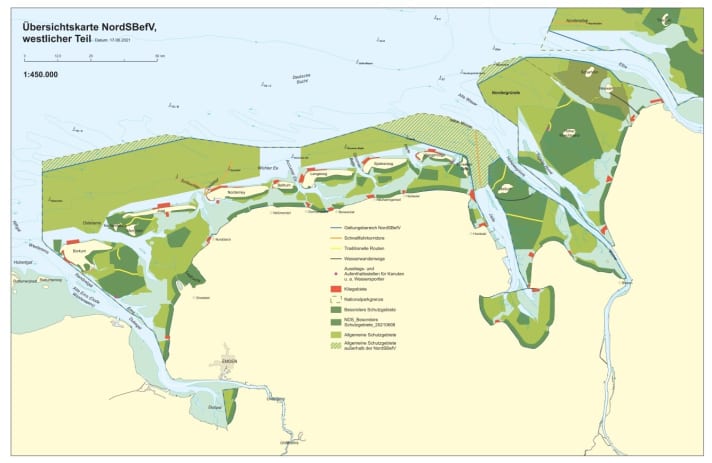
More than 30 years ago, navigation in the Wadden Sea in Germany was regulated and restricted in favour of nature conservation. Many areas may only be navigated from three hours before to three hours after high tide; anchoring and falling dry are permitted to a limited extent.
The protection zones introduced back then are still in place today. Federal and state ministries and the National Park Authority, as the ultimate guardian of the Wadden Sea, have been planning to extend these zones and further restrict travelling for some time.
The Federal Ministry of Transport has now published a draft of a new navigation regulation, and the coastal associations are up in arms. For them, the new regulations represent a massive restriction with an incomprehensible justification for the necessity.
On 16 August, the 259-page draft was sent to the associations, which now have until 13 September to comment.
And that's the point: the current restrictions regulate sailing and falling dry in the Wadden Sea. The previously protected areas are to be replaced and supplemented by so-called "special" and "general protection areas". In the "Special Protection Areas" (dark green on the maps), navigation would only be permitted in designated fairways; travelling across the mudflats would also be prohibited at high tide.
The yellow lines are an exception, which may continue to be used as "traditional routes". In the "general protected areas" (light green on the maps), cycling is permitted at all times; the three-hour rule would no longer apply.
Falling dry would be prohibited in all green areas except those marked with red dots.

There are not many such points left in the Wadden Sea in Lower Saxony - exactly two. "Here in the west of the island, we have a place in the mudflats where the ships of the Norderney and Juist sailors have been allowed to anchor for decades. That would be taken away from us," says Olaf Weers, chairman of the Juist sailing club.

Weers adds: "We are already in a sailing desert here anyway. We have to fight for our infrastructure year after year. And now we're not even allowed to do our laps across the mudflats after work and fall dry." It will also make it more difficult for islanders to run errands and visit the doctor on the mainland.
"If we are no longer allowed to take a direct line across the mudflats to Norddeich, we have to cross the Seegatt. That can be very dangerous for smaller boats in certain weather conditions." For all islanders, it's about more than just restricting their freedom to spend their leisure time. That is why his association and those on the neighbouring island had sent statements to the Lower Saxony Sailing Association. They had two days to review and comment on the extensive paper.
Soltwaters e.V., the association representing the interests of tidal flat users, is one of the organisations entitled to be consulted. The association represents a good 12,000 members. "There is to be a fairly general ban on going dry. However, the reasons for this are not comprehensible. Only 'disturbing stimuli' are mentioned in general terms as a potential danger to the wildlife in the Wadden Sea," explains Soltwaters chairwoman Iris Bornhold.
"Soltwaters" and its members also stand for the fact that the Wadden Sea is a unique area worthy of protection. "It is difficult to accept the new bans when there is no real evidence of a threat to wildlife from us sailors," Bornhold continued. "We are currently looking closely at the draft bill in order to submit a statement. At the same time, we will also be seeking dialogue with the ministry."
In fact, the justification in the draft bill for the new regulation reads more like an administrative law end in itself:" (...) navigation of national parks by watercraft (...) was last regulated (...) in 1995. Since then, the national park laws of the federal states have changed. The conservation objectives have been adapted and the protected areas significantly extended. (...). Consequently, the regulations of the current Navigation Ordinance do not take into account the current protection objectives and the extensions of the national parks. The corresponding entries of national park protection zones in the nautical charts are also no longer up to date. In addition, the use of coastal transport areas has changed (e.g. transport to offshore wind turbines), meaning that the current ordinance does not adequately take into account the needs of commercial transport."
The Federal Ministry of Transport will analyse the comments of the associations entitled to be consulted - including water sports and environmental protection associations - and revise the draft if necessary; it is questionable whether the new regulation can still be prevented in general.
"It is to be expected that a new sailing regulation of some kind will be introduced," says Iris Bornhold. "We are doing everything we can to ensure that sailing and spending time in the Wadden Sea remains possible, not just for the pleasure of it, but also for safety reasons. We hope that our statement will be heard." Thousands of sailors on the north German coasts are doing the same.

